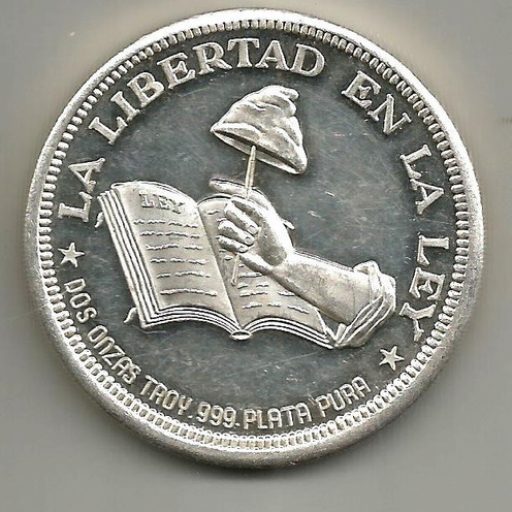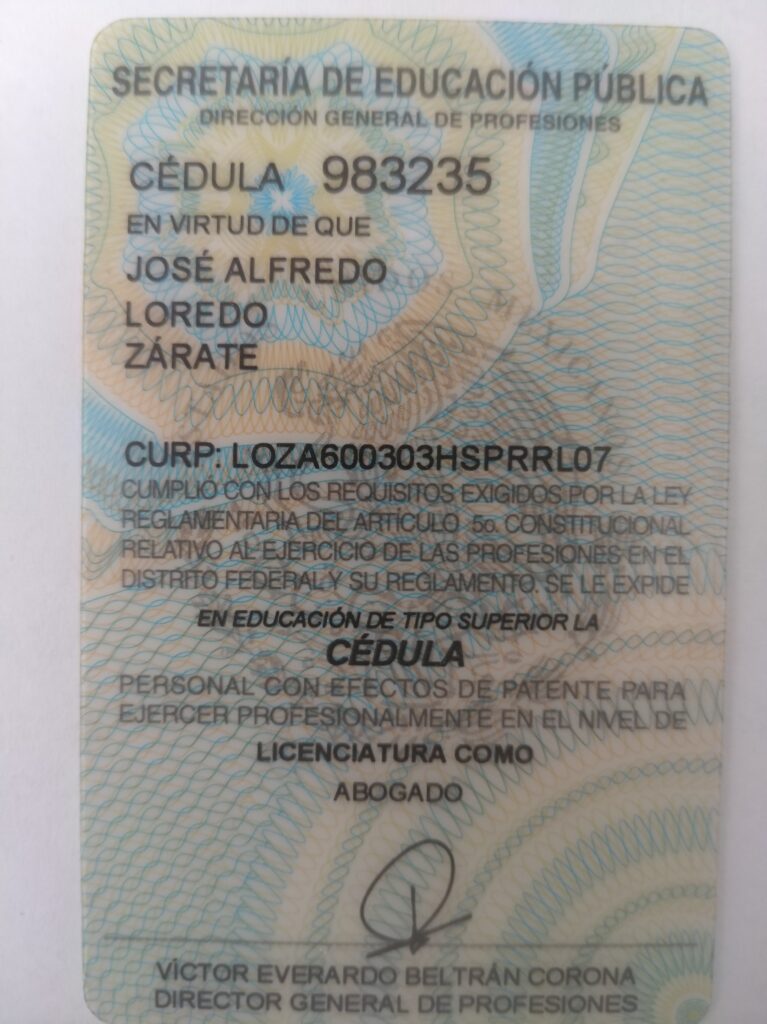
SITUATION
THE PRE-EXISTENCE OF A LEGAL HYPOTHESIS THAT PREVENTS THE INVIOLAVILITY OF THE 1957 CONSTITUTION,
THE RIGHT OF ACTION OF THE SOVEREIGN PEOPLE TO ACTIVATE THE COUNTER-REVOLUTIONARY RESISTANCE, AND,
THE PUBLIC ACCUSATION AGAINST THE REVOLUTIONARY INTRUDERS.
“Article 128.- This Constitution does not lose its force and vigor, even when due to some rebellion its observance is interrupted. In the event that, due to a public disorder, a government contrary to the principles that it sanctions is established, as soon as the people regain their freedom, its observance will be restored, and in accordance with it and the laws that have been issued by virtue of it, thus judged, as well as those who have figured in the government emanating from the rebellion, as well as those who have cooperated with it”.
3 MOMENTS THAT MEET THE FIRST PART OF THE HYPOTHESIS
“Article 128.- This Constitution does not lose its force and vigor, even when due to some rebellion its observance is interrupted. In the event that a public disorder establishes a government contrary to the principles it sanctions, —”
FIRST. – In the year 1876, without respecting the provisions of articles 6, 7, 9, 17, 77, 126, 127 and 128 of the Constitution of the United Mexican States of 1857, an army general named Porfirio Díaz who served as a public servant responsible for the defense of the country, he rebelled and using the violence and force of the weapons placed under his protection, established a government contrary to the principles of the constitution and arbitrarily seized the functions of the State.
SECOND. – In the year 1910, again violating articles 6, 7, 9, 17, 77, 126, 127 and 128 of the Constitution of the United Mexican States of 1857, other public disorders occurred, such as armed rebellions (revolutions and coups of state) headed by the seditious Francisco Madero, Victoriano Huerta, Venustiano Carranza, Plutarco Elías Calles, and others, prevailing the same situation of illegality, forgetting to recover the freedom of the Mexican people, reestablish the validity of the legitimate constitution of 1857, and, prosecute those responsible as ordered in the “public accusation” established in article 128 of the 1857 Constitution.
THIRD. – In the year 1917, contrary to the provisions of article 9 of the Constitution of the United Mexican States of 1857, which prohibits the right to deliberate in an armed meeting, the revolutionary rebels convened to meet to deliberate in a spurious “Constituent Congress”. ” in the city of Querétaro, where they edited or configured a bastard document they call the “1917 constitution”, with which they unduly supplanted the legitimate Constitution of the United Mexican States of 1857, and with which to date they keep us private of our freedoms, something similar to a large-scale kidnapping, where we can only invoke those rules imposed by the kidnappers, thus improperly existing two constitutions in force at the same time and for the same nation.
NON-COMPLIANCE WITH THE SECOND PART OF THE HYPOTHESIS
It is necessary to fulfill the following:
“…as soon as the people regain their freedom, their observance will be reestablished, and in accordance with it and the laws that have been issued by virtue of it, they will be judged as well as those who have figured in the government emanating from the rebellion, like those who would have cooperated with it”.
OF THE RIGHT OF ACTION TO EXERCISE A COUNTERREVOLUTIONARY RESISTANCE BASED ON THE SOVEREIGN AUTHORITY OF THE MEXICAN PEOPLE OF ARTICLE 39 OF THE CONSTITUTION OF 1857
National sovereignty understood as the power to activate its power of command and action of authority, according to article 39 of the Constitution of the United Mexican States of 1857, is deposited in the people and provides the following:
“Article 39.- National sovereignty resides essentially and originally in the people. All public power emanates from the people, and is instituted for their benefit. The people have at all times the inalienable right to alter or modify the form of their government.”
From the above legal provision we understand that a people is “sovereign” and is in possession of a social omnipotence: All rights are theirs; otherwise it would not be omnipotent; and not being omnipotent it would not be sovereign. For the same reason all obligations are outside of him; because if he had any obligation to fulfill, he would be a subject: sovereign is the one who commands, subject is the one who obeys; Sovereign is he who has rights, subject he who has obligations. Thus the principle of popular sovereignty, which is an atheist principle, is also a tyrannical principle, because where there is a subject and he has no rights, and a sovereign who has no obligations, there is tyranny. This forces us to understand the reality regarding the sovereignty or authority of a people against their representatives in government.
The principle of popular sovereignty does not recognize reciprocity in rights or limitation in obligations. The idea of just disappears where there are only masters and slaves: from here it turns out that the principle of sovereignty, being atheist and tyrannical, is also an immoral principle, because it destroys justice. It is so true that justice and popular sovereignty cannot coexist in the world, that, once the existence of the first is recognized, the second is annihilated, because if the people can only do what justice demands of them, the people are subjects and justice is sovereign, before this truth, the sovereignty of the people is an absurdity.
Sovereignty of the people is an empty word. What idea does the people have of its sovereignty? Is it that of the source of authority? And how does it communicate it? And what does it reserve? And how is it contained in all of it? And by what right could it reside in any of its parts? How can it be redeemed from the inevitable inconveniences of its nature? then, with this the individual is essentially strong, powerful, free, one: then, in his will, all de facto inconveniences expire, and in his reason, all those of right: then, is it intransmissible or perishable? because if it is transmitted, what is left for the people? If it is not transmitted, then the government is a usurpation, or it is an irony. Does it come from elsewhere? But from where? Is it divisible? What is its numerical ratio with respect to each person? What is its appreciative value in each nation? each individual?, for example: When twenty thousand perish in a battle, how is sovereignty left?, do its modifications follow the ratio of those born and dead in the population census?, where is sovereignty if the intruders of a military or revolutionary rebellion?
In the case of the Mexican Republic, the intruding military coup plotters and revolutionaries who founded the revolutionary State, by force of arms, usurped the powers of the Mexican Republic and implanted de facto governments contrary to the principles enshrined in the legitimate Constitution of the United Mexican States of 1857.
OF THE TOBAR DOCTRINE OF INTERNATIONAL LAW.
There is a principle that defends constitutional inviolability, which is enshrined in the so-called TOBAR DOCTRINE, that of Dr. Carlos Tobar, known as: “Theory of Constitutional Legitimacy in Matters of Recognition”, which acts in defense of democratic legitimacy establishes that :
“The American republics, due to their good name and credit, apart from other humanitarian and altruistic considerations, must intervene indirectly in the last intestines of the republics of the continent. This intervention could consist, at least, in the non-recognition of the de facto governments of the revolutions against the Constitution”.
The Tobar Doctrine is recognized in the: “CONVENTION TO THE GENERAL PEACE AND FRIENDSHIP TREATY” signed on December 20, 1907, and in it the governments of the Central American States signed said treaty by which they were obliged not to recognize a government that in any of the five republics it could come to power as a result of a coup d’état, or of a revolution against the recognized government, as long as the representatives freely elected by the people had not reorganized the country.
PERCEPTION OF THE CENTRAL PROBLEM
With the military and revolutionary uprisings of 1876 and 1910, the constitutional order and the system of government in the Mexican Republic were obviously altered, to the detriment of articles 6, 7, 8, 9, 39, 77, 126, 127 and 128 of the legitimate Constitution of the United Mexican States of 1857.
In the bastard constitution of 1917, the founders of the revolutionary State modified the “system of the democratic regime”, in such a way that the electoral processes from then on would not meet the requirement of the mathematical formula of democracy being a democratic Republic, which consists in obtaining suffrage with the “will of the majority”, which consists of obtaining half plus one of the votes of the total number of voters registered in the electoral register, and arbitrarily imposed the invalid methods or modalities called: “relative majority and proportional representation.
The general idea of the situation of the Mexican deprived of his liberties, under the command of his kidnappers of the revolutionary State, is worth defining with the following analogy:
ANALOGY: According to: Pierre Joseph Proudhon. “To be governed (in this case by the revolutionary state) is to be observed, inspected, spied on, directed, subjected to the law, regulated, deeded, indoctrinated, lectured on, verified, estimated, classified according to size, censored and ordered by beings who do not they do not have the appropriate titles, knowledge or virtues to do so Being governed means, for each operation, transaction or movement, being noted, registered, counted, appraised, stamped, measured, numbered, evaluated, authorized, denied, authorized, endorsed, admonished, prevented, reformed, readjusted and corrected. It is, under the pretext of public utility and in the name of general interest, to be put under tax, shackled, sheared, swindled, monopolized, uprooted, exhausted, teased and robbed to , at the slightest resistance, at the first word of complaint, to be repressed, fined, defamed, hassled, put down a price, shot down, defeated, disarmed, restrained, imprisoned, shot, abused, judged, condemned, banished, sacrificed, sold, betrayed, and, to add insult to injury, ridiculed, mocked, outraged and disgraced”.
To demonstrate the veracity of the foregoing, we offer the evidence resulting from the recovery files of the Mexican government by GUACAMAYALEAKS.
ABSTRACT
If an authority is illegal, as in this case that of the intruders of the revolutionary State, then it is not an authority, then; in the face of the usurpation of power by force of arms:
Who restores legality in the midst of anarchy?
Who organizes the procedure that tends to make the de facto governments of the revolutionary state disappear?
Who issues the call from which a legitimate government is born again?
Who resumes the tradition of legitimacy in the new government?
In accordance with article 39 of both constitutions (1857 and 1917), it is the people themselves who have the inalienable right to be able to meet with the objective of dealing with the political affairs of the country, and in that meeting agree on the way to alter or modify the form of his government.
In accordance with article 9 of both constitutions, the people (citizens) are guaranteed the right to meet, and in this case it is a meeting of the original, public, peaceful constituent type, with full powers to comply with the provisions of article 128 of the 1857 Constitution and/or 136 of the 1917 Constitution, as well as that of altering and modifying the form of government in Mexico.

